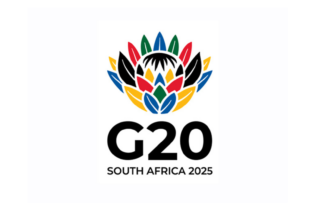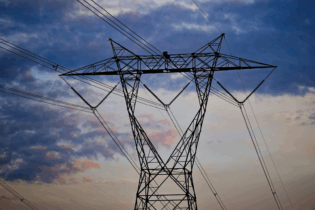Capital expenditure by Metro’s increased by 20 percent y-y in the first two quarters of the 2023/24 financial year (last six months of the 2023 calendar year), excluding Nelson Mandela Bay, that again included significant adjustments. City of Cape Town was the biggest contribution, with capital expenditure having increased by 62 percent (or R1.3bn) to R3.5bn. eThekwini increased expenditure by 11 percent (or R156m) to R1.5bn, while Tshwane increased by 45 percent (or R170m) to R2.2bn.
Capital expenditure by Ekurhuleni and Mangaung decreased in the last six months of 2023, with only a moderate increase reported by City of JHB. Collectively, Metro’s spent less than 30 percent of the annual capital budgets, on par with expenditure trends in the comparable 2022/23 financial period. Good news is expenditure increased in housing, road transport, energy and water and wastewater management. Capital expenditure on health however declined by 13 percent. Capital expenditure on energy sources showed the highest expenditure rate, having spent just under 40 percent of the annual budget, with 28% spent of the wastewater management budget. In the 2024 Budget, infrastructure allocations to local government was increased by R23bn to R213bn over the three-year period from 2024/25 to 2026/27, while allocations to national and provincial governments were reduced. This means a higher portion of infrastructure expenditure is projected to be distributed through local governments, reaching 50 percent of total government infrastructure expenditure (excluding SOE’s and public entities) by 2026/27. It is therefore imperative to monitor local government expenditure at metro, district and local government level as more responsibility in terms of infrastructure delivery is passed through, despite capacity and management issues that has for decades plagued service delivery. Based on historical patterns, capital expenditure by metro’s generally accelerate in the 3rd and 4th quarters of a financial period, and if this is the case, it could have a positive, albeit moderate, impact on investment in the first half of 2024.
Click here to download the latest Metropolitan Capital Expenditure
Construction Monitor February 2024
In February 2024, South Africa witnessed pivotal events such as the State of the Nation Address (SONA) and the National Budget Speech, shedding light on the nation’s economic challenges. The SONA, usually a platform for showcasing achievements, appeared more geared towards election campaigning this time. Conversely, the Budget Speech delved deep into governmental finances, revealing ongoing hurdles like sluggish growth, energy reliability concerns, inflationary pressures, and mounting debt.
Gauteng has its share of concerns, including building safety issues, school infrastructure challenges, and ongoing debates surrounding e-tolls. Funding cuts loom due to subpar expenditure performance in several metropolitan areas. Despite delays, projects like the Lanseria Smart City remain on the agenda, alongside private sector investments such as Microsoft’s new Data Centre Campus. In the Eastern Cape and KwaZulu-Natal, significant investments are planned for road maintenance, renewable energy projects, and infrastructure upgrades. These initiatives aim to enhance industrial parks, address road safety issues, and improve water resource management.
Overall, the construction sector’s outlook remains mixed. While high-impact project announcements in the first two months of 2024 were primarily PPPs, signaling potential growth, the decline in private sector residential building developments poses challenges. Approvals for building developments, both residential and non-residential, have weakened across various provinces, indicating a cautious approach to new projects. The economic and construction landscapes require strategic solutions and collaborative efforts between the public and private sectors to navigate challenges effectively and foster sustainable growth. Download February 2024 Monitor
Please do not hesitate to contact us for any additional information required and don’t forget to visit the website for regular updates and reviews on current trends in the local construction sector.







